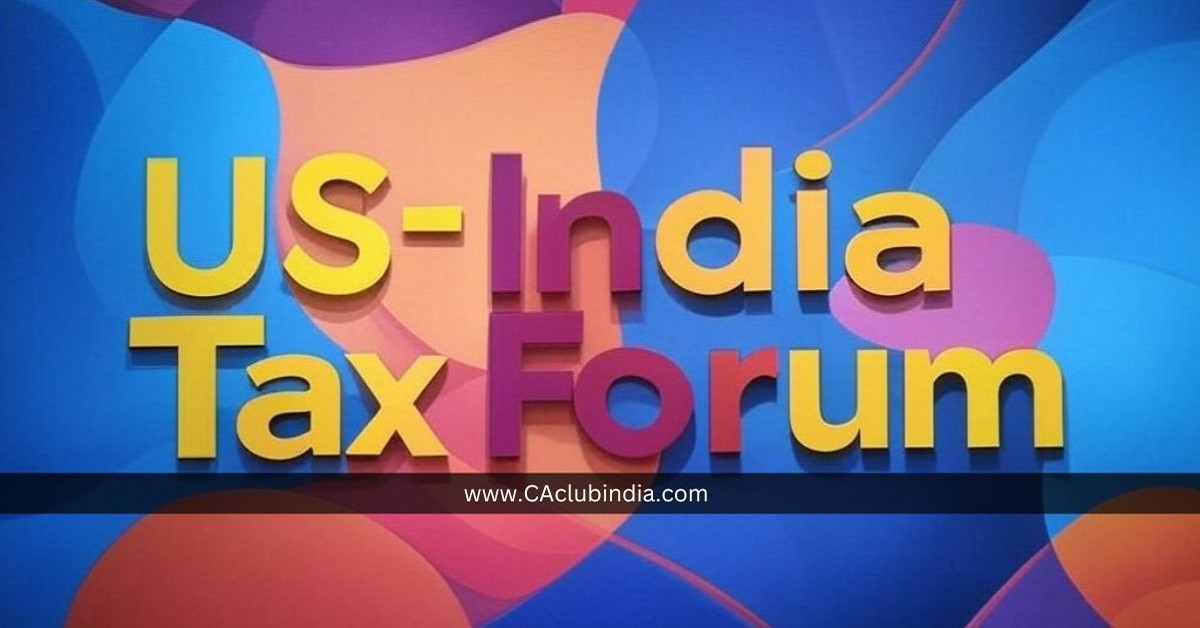Ahead of the Union Budget 2025, the US-India Tax Forum, under the US-India Strategic Partnership Forum (USISPF), has put forth recommendations aimed at simplifying India's tax framework and boosting investor confidence. The proposals span direct and indirect taxes, focusing on fostering growth in critical sectors like manufacturing, renewable energy, healthcare, and digital services.

Key Recommendations on Direct Taxation
- Streamlining TDS Rates: The Forum recommends reducing the Tax Deduction at Source (TDS) structure to two or three rates, making compliance easier for taxpayers.
- Tax Rate Alignment for Banks: It proposes aligning tax rates for foreign bank branches with those of domestic banks to enhance competitiveness.
- Concessional Dividend Tax for FPIs: A 10% concessional tax rate on dividends for Foreign Portfolio Investors (FPIs) is suggested to attract more global investment.
- Support for GIFT City: To position Gujarat International Finance Tec-City (GIFT City) as a global financial hub, the Forum advocates for tax exemptions on dividends and financial transactions.
- Manufacturing Incentives: Extend concessional tax rates for greenfield manufacturing beyond March 2024 and introduce a 15% tax rate for Maintenance, Repair, and Overhaul (MRO) firms.
Indirect Taxation and Sector-Specific Proposals
- Customs Tariff Simplification: The Forum suggests a three-rate structure (0%, 5%, and 10%) to attract investments, especially in electronics manufacturing.
- Healthcare Reforms: Recommendations include reducing tariffs on life-saving drugs and maintaining exemptions for medicines under Patient Assistance Programs.
- Digital Economy Improvements: Proposals include refund mechanisms for the Equalisation Levy and simplified tax return forms for foreign digital service providers.
Boosting Transparency and Reducing Litigation
Tarun Bajaj, chairperson of the US-India Tax Forum and former revenue secretary, highlighted the importance of addressing transfer pricing complexities by expanding Safe Harbor provisions and streamlining the Advance Pricing Agreement (APA) process. He also emphasized the need for flexibility in tax assessments, including the allowance of multiple virtual or physical hearings for businesses with intricate structures.
"Rationalizing TDS structures, extending concessional tax rates for greenfield manufacturing, and supporting GIFT City as a global financial hub address systemic challenges while opening avenues for sustainable growth," Bajaj stated.
Conclusion
As India navigates global economic uncertainties, these recommendations aim to simplify the tax regime, enhance transparency, and provide targeted incentives for transformative sectors. By addressing systemic issues, the proposed reforms could reinforce India’s position as a preferred investment destination while driving sustainable growth.
These proposals set the stage for potential policy shifts in the upcoming Union Budget, with a focus on creating a predictable and investor-friendly tax environment.





 CAclubindia
CAclubindia

